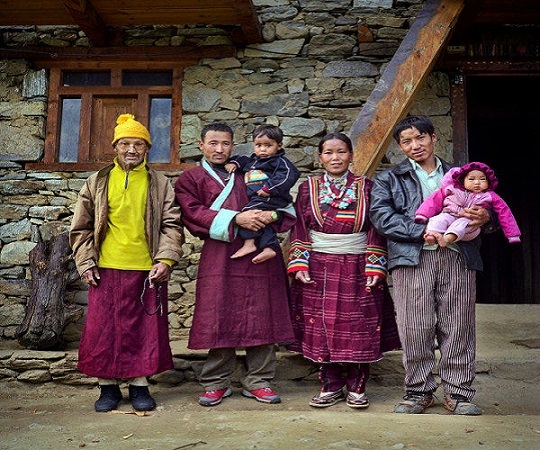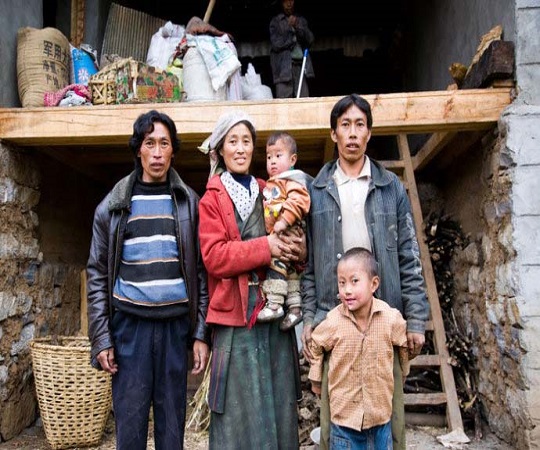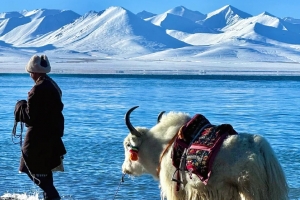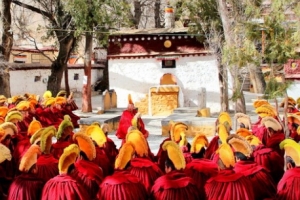Tibet is famously recognized for its unique practice of polyandry – where two or more brothers share one wife – which accounts for 24% of Tibetan families according to field research conducted during 1950s. This practice has long been studied as part of studies related to kinship and social organization with Tibet serving as an archetypical example of fraternal polyandry.
Reasons for Polyandry in Tibet
1. Protect family Property From Being Scattered
Monogamous marriage models will result in dispersing of family property resulting from multiple men leaving at once; polyandrous families can therefore keep family property intact by remaining together as one unit.
2. Strengthening Family Labor Force: When living in harsh living environments, small families tend to become fragile and unstable. Polyandrous families can help strengthen and increase family productivity.
3. Social tradition and cultural background: For some regions and ethnic groups, this form of marriage can be considered traditional and accepted within society.

Polyandry Coexistence Model in Tibet
At a polyandrous household, husband-wife relationships and child inheritance take on special significance. Wives must serve both husbands, while both may share in household duties and housework responsibilities. Children tend to fall under the jurisdiction of their eldest brother whose rights include having final say over whether to sleep with any potential partners in his lifetime.
Polyandrous families feature unique arrangements when it comes to husband/wife relations and child inheritance. Wives must serve each husband while husbands often take turns taking part in household decisions and chores. Children tend to belong to their eldest brother’s children – including having the right to decide whether or not he sleeps with each wife in turn.
Reasons why brothers marry one another can be similar to why sisters share husbands: social power expansion and longevity of family ties are two crucial components to the stability of any household, especially one with several members such as brothers sharing wives. One common scenario involves keeping one brother home to run the family business or care for elderly relatives and support his parents; others can perform various errands or go out hunting/herding etc – their earnings then shared equally throughout production/prosperity processes within a household.
Brother-shared wife families tend to be monogamous arrangements with one brother marrying the bride before sharing custody after marriage with his younger sibling. Before marrying each wife separately, brothers often explain to each woman about sharing wives; there may be cases in which both wives marry later due to living together and sharing wives – something which was later recognized by family and society alike. However, only the bridegroom appears as the official husband to outsiders; his brothers are called “Pengjia”, meaning additional. Children born of either party will regard only one as their biological father while all others will be known simply as uncles or aunties.
In polyandrous families, the wife generally occupies a dominant role. Not only should she focus on maintaining good relations between mother-in-laws and daughter-in-laws but also with husbands; society often judges daughter-in-laws on whether they manage dress codes, diet, sexual life and respect of husbands appropriately and treat each of them equally; in such an ideal scenario she will make an excellent wife, daughter-in-law and family member!

Current Status of Polyandry in Tibet
Polyandry has become far less common since society and laws changed, becoming nearly unheard of today. China’s marriage laws only recognize monogamous marriage systems – therefore polyandry is no longer legally recognized or practiced within Tibet as well as elsewhere within China.
We have unlocked the secrets of Tibetan Polyandrous Families for you, should any further inquiries arise, you are more than welcome to contact us anytime. When studying historical phenomena we should respect various cultures and historical stages while at the same time understanding this phenomenon from an anthropological viewpoint. If you are considering travel to Tibet, just contact us. Our professional team offers one-stop service that ensures an enjoyable Tibet trip.










